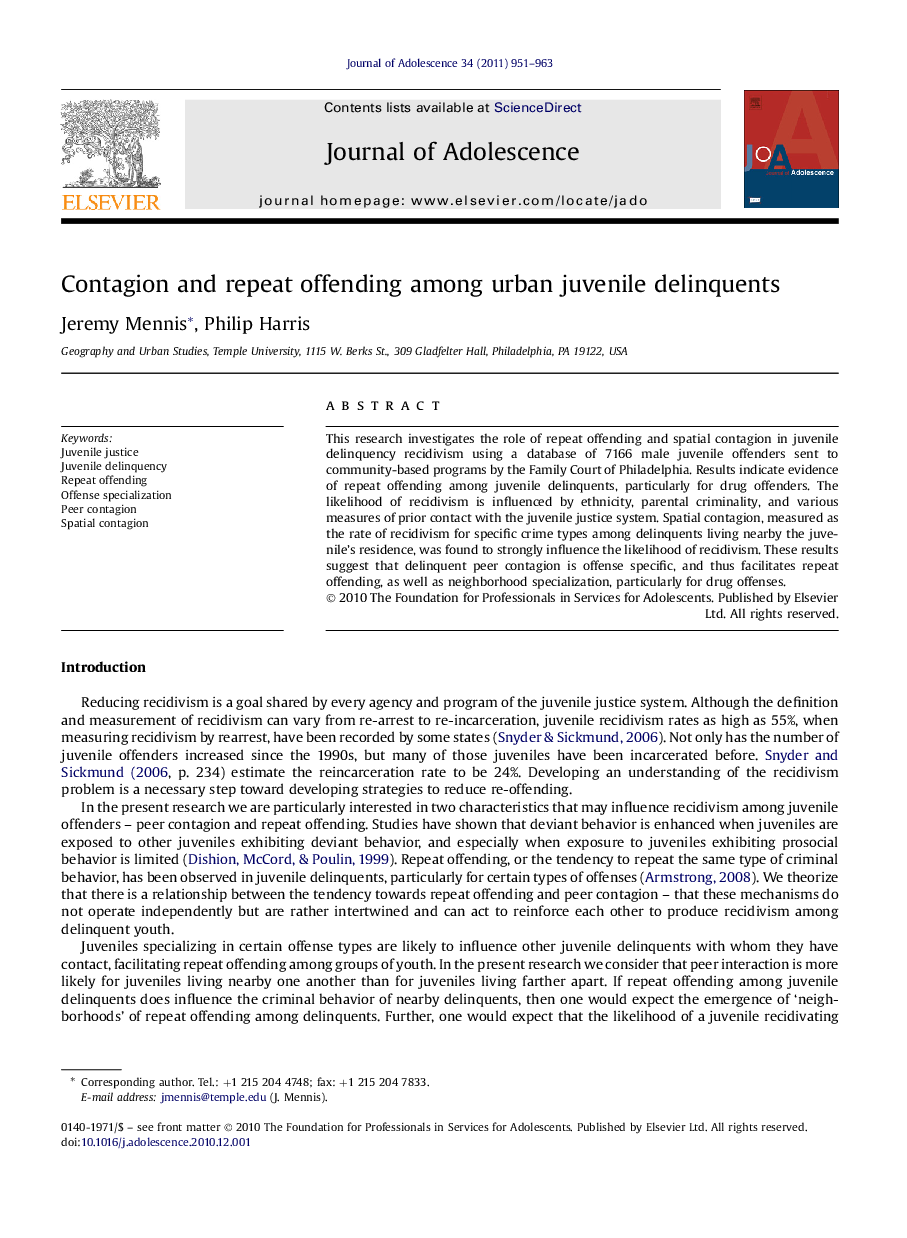| Article ID | Journal | Published Year | Pages | File Type |
|---|---|---|---|---|
| 880839 | Journal of Adolescence | 2011 | 13 Pages |
This research investigates the role of repeat offending and spatial contagion in juvenile delinquency recidivism using a database of 7166 male juvenile offenders sent to community-based programs by the Family Court of Philadelphia. Results indicate evidence of repeat offending among juvenile delinquents, particularly for drug offenders. The likelihood of recidivism is influenced by ethnicity, parental criminality, and various measures of prior contact with the juvenile justice system. Spatial contagion, measured as the rate of recidivism for specific crime types among delinquents living nearby the juvenile’s residence, was found to strongly influence the likelihood of recidivism. These results suggest that delinquent peer contagion is offense specific, and thus facilitates repeat offending, as well as neighborhood specialization, particularly for drug offenses.
